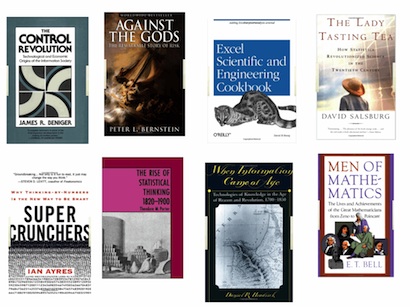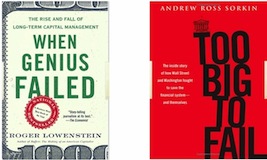Methodologies for Understanding Web Use with Logging in Context
Abstract
This paper describes possible approaches of data collection and analysis methods that can be used to understand Web use via logging. First, a method devised by Choo, Detlor, & Turnbull (1998, 1999 & 2000) that can be used to offer a comprehensive, empirical foundation for understanding Web logs in context by gaining insight into Web use from three diverse sources: an initial survey questionnaire, usage logs gathered with a custom-developed Web tracking application and follow-up interviews with study participants. Second, a method of validating different types of Web use logs is proposed that involves client browser trace logs, intranet server and firewall or proxy logs. Third and finally, a system is proposed to collected and analyze Web use via proxy logs that classify Web pages by content.
Excerpt
It is often thought that in some configurations, client browsing application local caching settings may influence server-based logging accuracy. If it is not efficient to modify each study participant’s browser settings (or that temporarily modifying participants browser settings for the study period affects true Web use) a method of factoring in what may be lost due to local cache may be applied. … By tuning intranet server logging settings and collecting and analyzing these logs, some initial measurement of the differences that client browser caching makes in accurate firewall logs can be made. Comparisons to access on the organizations intranet Web server logs such as total page requests per page, time to load, use of REST or AJAX interaction and consistent user identification can be made to the more raw logging from the firewall logs collected
Update
What’s novel about this paper is the introduction of using different datasets to validate or triangulate the veracity and accuracy of log data. Often, logs are collected and processed without context to explain subtle interaction patterns, especially in relation to user behavior. By coordinating a set of quantitative resources, often with accompanying qualitative data, a much richer view of Web use is achieved. This is worth remembering when relying on Web Analytics tools to form a picture of a Web site’s use or set of Web user interactions: you need to go beyond the basic statistical measures (often far beyond what typical log analysis software provides, certainly by their default reports) and design new analysis techniques to gain understanding.
Keywords
browser history, firewall logs, intranet server logs, web use, survey, questionnaire, client application, webtracker, interview, methodology, logs, server logs, proxy, firewall, analytics, content classification, client trace, transaction log analysis, www
Cite As
Turnbull, D. (2006). Methodologies for Understanding Web Use with Logging in Context. Paper presented at the The 15th International World Wide Web Conference, Edinburgh, Scotland.
References in this publication
- Auster, E., & Choo, C. W. (1993). Environmental scanning by CEOs in two Canadian industries. Journal of the American Society for Information Science, 44(4), 194-203.
- Catledge, L. D., & Pitkow, J. E. (1995). Characterizing Browsing Strategies in the World-Wide Web. Computer Networks and ISDN Systems, 27, 1065-1073.
- Choo, C.W., Detlor, B. & Turnbull, D. (1998). A Behavioral Model of Information Seeking on the Web — Preliminary Results of a Study of How Managers and IT Specialists Use the Web. Proceedings of the 61st Annual Meeting of the American Society of Information Science, 290-302.
- Choo, C.W., Detlor, B. & Turnbull, D. (1999). Information Seeking on the Web – An Integrated Model of Browsing and Searching. Proceedings of the 62nd Annual Meeting of the American Society of Information Science, Washington, D.C.
- Choo, C.W., Detlor, B. & Turnbull, D. (2000). Web Work: Information Seeking and Knowledge Work on the World Wide Web. Dordrecht, The Netherlands, Kluwer Academic Publishers.
- Cuhna, C.R., Bestavros, A. & Crovella, M.E. (1995). Characteristics of WWW Client-Based Traces. Technical Report #1995-010. Boston University, Boston MA.
- Flanagan, J. C. (1954). The critical incident technique. Psychological Bulletin 51(4), 327-358.
- Jansen, B. J., Spink, A. & Saracevic, T. (2000) Real life, real users, and real needs: a study and analysis of user queries on the Web. Information Processing & Management, Volume 36, Issue 2, pp 207-227.
- Jansen, B. J. (2005) Evaluating Success in Search Systems. Proceedings of the 66th Annual Meeting of the American Society for Information Science & Technology. Charlotte, North Carolina. 28 October – 2 November.
- Kehoe, C., Pitkow, J. & Rogers, J. (1998). GVU’s Ninth WWW User Survey Report. http://www.gvu.gatech.edu/user_surveys/survey-1998-04.
- Pitkow, J. and Recker, M. (1994). Results from the first World-Wide Web survey. Special issue of Journal of Computer Networks and ISDN systems, 27, 2.
- Pitkow, J. (1997, April 7-11). In Search of Reliable Usage Data on the WWW. Sixth International World Wide Web Conference Proceedings, Santa Clara, CA.
- Rousskov, A. & Soloviev, V. (1999) A performance study of the Squid proxy on HTTP/1.0. World Wide Web., 2, 1-2, pp 47 – 67.

